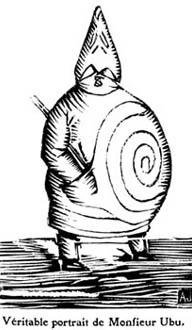G. L. Ford's 'The Invention of Perspective' is a chapbook-length poem based largely upon the theoretical works of two early Renaissance artists: 'On Painting' by architect (among other things) Leon Battista Alberti (a free copy of which can be found online in both English and Latin: http://www.noteaccess.com/Texts/Alberti/) and painter Piero della Francesca's 'On Perspective in Painting.' Alberti, architect of the Tempio Malatestiano (http://upload.wikimedia.org/wikipedia/en/b/bb/Tempio_malatestiano.jpg), and Francesca, painter of the Flagellation (http://upload.wikimedia.org/wikipedia/en/1/11/Piero_-_The_Flagellation.jpg), authored these texts (Francesca's being a continuation of Alberti's) in order to create a theoretical framework for what would be 'perspective:' an elevated position of the self, whose observations were justified and perfected by means of a geometric assessment of the objects observed so as to revitalize what Alberti termed 'nature,' which was almost synonymous with science. Almost synonymous, as Alberti and Francesca, unlike de Vinci, heavily influenced by the aesthetic set out in these works, were still working under the seemingly contrary ideas the soul, the God of the Middle Ages and a beauty that was not necessarily related to scientific and mathematical representation when they speak of nature.
G. L. Ford in 'The Invention of Perspective' is writing a poem that walks through the spiritual justification of just such an invention (thankfully leaving out the mathematics that were such a large part of that approach), marveling at the moments in which the discourse shows itself to be filled with potential, while at the same time preserving quite a bit of the rhetoric that has dated that moment.
The poem seems, at many moments, to be in a sort of conversation with metaphysical poetry: there is a general and a specific that continually flow into one another. All of the weight of the poem seems wrapped up in an understanding of the general, yet, as the poem is mimicking works of pedagogy and instruction, the purpose of the general is the generation of specifics, specific paintings in this case. The cascades of 'you' are both a bane and a pleasure, as they are very specific instructions on what to do and what not to do, from the source of a kind of school master, but they also call on the 'you' to discover the truth that the instruction flows out of; not a looking inward, but an assessment of looking outward.
It is hard to get around the high, removed tone of the Renaissance, the tone makes no attempt to escape anachronism; the voice of the poem is male, educated, and several centuries removed. I adore this book, but its relevance is a question that must be answered while reading.
"The hand," more or less its own character in the poem, is typewritten on the blue cover of the book, produced and hand numbered (in latin characters) in an edition of 25 made specially for the Ugly Duckling reading at the Old American Can Factor. If you want a copy, ask around, quite a few greeners were there.
A pair of pages from the book:
whether the day is cold or warm.
